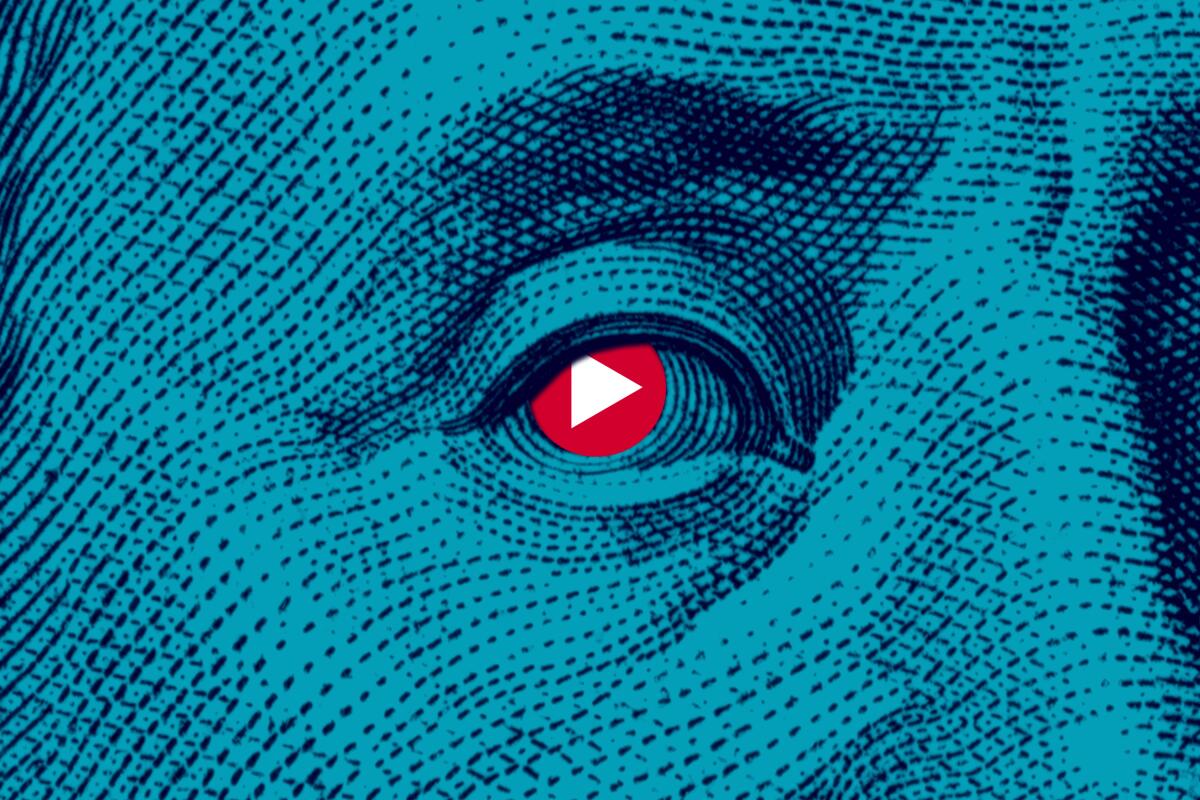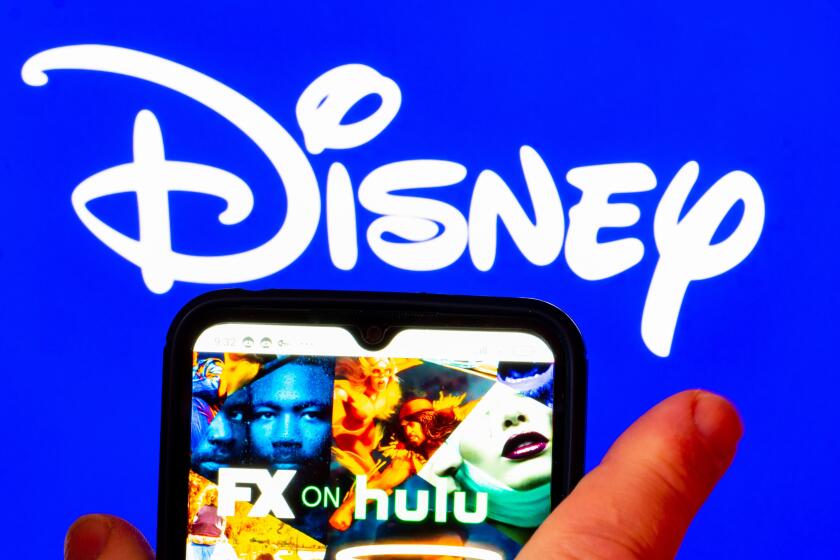Wide Shot: Hollywood’s huge executive paydays. Netflix’s password sharing plan

- Share via
Welcome to the Wide Shot, a newsletter about the business of entertainment. Sign up here to get it in your inbox.
Out-of-control CEO pay has become one of the primary talking points of Writers Guild of America members striking throughout Hollywood and beyond.
Are they wrong to highlight their bosses’ massive compensation packages?
Of course not.
Outsized executive paydays have been an issue in the corporate world for decades. But in the entertainment and media industry, the numbers are particularly staggering, as my colleagues Brian Contreras, Wendy Lee and Thomas Suh Lauder reported, with the help of data firm Equilar Inc.
Pay for Hollywood’s top executives “soared during the height of the pandemic, climbing to $1.43 billion in 2021, up 50% from total pay in 2018,” they wrote in their analysis. The article is based on data compiled from proxy statements that 10 publicly traded media and entertainment companies filed with the Securities and Exchange Commission over multiple years.
The 2021 pay surge came at a time when entertainment giants were making massive investments in streaming content. Some were bulking up through mega-mergers, creating, for example, Warner Bros. Discovery.
Total executive compensation levels plunged last year as those companies faced investor pressure to make streaming profitable.
But no one’s going broke in the C-suite.
Not Walt Disney Co. CEO Bob Iger. Not Netflix’s co-CEO Ted Sarandos. And certainly not Warner Bros. Discovery boss David Zaslav, who has become the WGA’s cartoon villain in this issue, with his $247 million in total compensation in 2021 (including stock awards he received under a new employment agreement tied to the WarnerMedia and Discovery merger).
Zaslav hasn’t made much of an effort to shirk his image as the well-heeled tycoon who killed “Batgirl,” having been seen just last week at a Cannes party he co-hosted with Graydon Carter, with a guest list featuring Scarlett Johansson, Leonardo DiCaprio and Martin Scorsese. Shortly before that, a video went viral of Zaslav being heckled by students chanting “pay your writers” during his Boston University commencement address.
The “Succession” and “Veep” writers’ rooms would have scrapped such a scene for being too obvious.
And lumping in writers and directors as undifferentiated “creators” in the credits for shows on the newly launched Max (née HBO Max)? Not a wise move if someone wants to signal respect for the people who make the shows and movies for a relaunched streaming service.
No one’s naive enough to suggest that studio chiefs will take a pay cut to satisfy the writers’ demands on streaming residuals and other points of contention. And this issue is hardly limited to members of the Alliance of Motion Picture and Television Producers. The Times’ analysis includes non-AMPTP company Endeavor, owner of the WME talent agency, which reps some of the world’s most powerful WGA members.
Nonetheless, the optics are helpful for the writers’ public relations battle, which is important because it maintains solidarity and momentum. Which the scribes badly need in order to get their demands met. If the writers hang together, many execs expect the work stoppage to last until mid-September, when the Emmys are supposed to air, if not further out.
Observers, including NYU Stern School of Business professor Scott Galloway (in this widely shared blog post), have pointed out the poor timing of this strike, which comes as studio profits are being squeezed by the industry’s over-investment in streaming on one end and the crumbling of the pay-TV model on the other.
That’s true, and may crimp the writers’ leverage.
Studio executives aren’t exactly upset about all money they’re saving by not producing scripted TV shows. Streamers are practically bragging about the depth of their libraries and their stockpile of shows, and networks are filling their fall schedules with cheap-to-make reality television.
But here’s an alternative theory: While streamers may have enough banked material to get by in the short term without losing too many subscribers, they will eventually feel the effects of production shutdowns, and so will viewers. A lack of compelling content will send even more viewers to YouTube and TikTok.
To endorse the notion that studios unquestionably have the upper hand here is to accept the kind of short-term, quarter-to-quarter thinking that helped get the industry into this conflict in the first place.
Stuff we wrote

— Inside the writers’ ‘guerrilla tactics’ to shut down live productions. The focus on shutting down individual productions such as “The Chi” reflects the more aggressive tactics being used by Writers Guild members compared to the previous strike in 2007-’08.
— What does it mean to be a successful working actor? Probably not what you think. Being an actor is a job that everyone thinks they understand. But do we? More from our “Explaining Hollywood” series: How to get a job as an actor in film and TV.
— Elon Musk is dying to be funny. These eight comedians have some notes. “Like an alien’s version of comedy.” “The sense of humor of a horny dentist.” Nikki Glaser, Hari Kondabolu and other comedians on Elon Musk’s desperate quest to be funny.
— DirecTV keeps NFL Sunday Ticket rights for restaurants, bars and casinos. Even though DirecTV relinquished the NFL Sunday Ticket package for consumers to Google’s YouTube TV beginning with the 2023 season, the satellite television provider will continue to broadcast games for commercial venues.
Number of the week

Netflix is trying to get more freeloaders to pay up.
Last week the company said it would start charging U.S. users $7.99 to share their account with someone outside their household, or else the nonpaying Netflix users can pay for their own memberships.
The move has been coming for a long time.
Netflix last year told investors that more than 100 million users were watching Netflix by using someone else’s password, a detail it disclosed at a time when it was losing subscribers. The company followed up with efforts to encourage piggybackers to subscribe in other countries, including Costa Rica, New Zealand and Canada.
Password sharers will be charged different amounts depending on their country.
While the strategy could cause some cancellations in the short term, it should boost Netflix’s average revenue per user stats while also encouraging additional sign-ups. Many of those newly paying customers will probably opt for the recently launched ad-supported tier ($6.99), which costs $1 less per month than the price of adding someone to an existing account.
Wedbush Securities analyst Michael Pachter estimated that the crackdown could drive an additional $1.7 billion in annual revenue, assuming 10% of subscribers opt to pay $5 to $8 more each month. That’s a healthy amount of money for Netflix, and all it’ll cost Sarandos is a bit of online outrage.

Disney’s new version of “The Little Mermaid,” directed by Rob Marshall and starring Halle Bailey, grossed $117.5 million in the U.S. and Canada through Monday’s holiday.
That’s similar to how Guy Ritchie’s version of “Aladdin” did over Memorial Day weekend in 2019 ($116.8 million from four days).
However, the latest CGI-heavy update of a Jeffrey Katzenberg-era classic did softer numbers than expected overseas with $63.8 million in ticket sales, including a particularly weak result in China (about $2.5 million, according to Artisan Gateway).
There have been many reports of review-bombing on domestic and international film websites. Several outlets, including IMDb, are issuing warnings about the veracity of their ratings given the number of one-star notices for the title, which happens to feature a Black actor as Ariel.
Best of the web
— How the ‘Fast and the Furious’ turned a sleepy L.A. convenience store into an international tourist attraction. (GQ)
— Does announcing for president on Twitter prove the Ron DeSantis campaign is too online? (L.A. Times)
— Inside Disney and Comcast’s fight over the future of Hulu. (Wall Street Journal)
Finally ...
When people think of the late Tina Turner‘s biggest hits, they sometimes tend to turn to the material she created during her 1980s career revival (“What’s Love Got to Do With It”) along with such earlier masterworks as “Proud Mary” and “River Deep — Mountain High.”
All great stuff, no doubt.
But it’s worth digging deeper into the catalog that made her the Queen of Rock ‘n’ Roll in the first place, stretching back to the incredible, energetic records with Ike Turner.
Here are 10 of her best tracks, beyond the radio staples everyone knows, as chosen by music critic Stephen Thomas Erlewine.
My pick is “Bold Soul Sister,” a spectacular example of bluesy funk from the era.
The Wide Shot is going to Sundance!
We’re sending daily dispatches from Park City throughout the festival’s first weekend. Sign up here for all things Sundance, plus a regular diet of news, analysis and insights on the business of Hollywood, from streaming wars to production.
You may occasionally receive promotional content from the Los Angeles Times.




